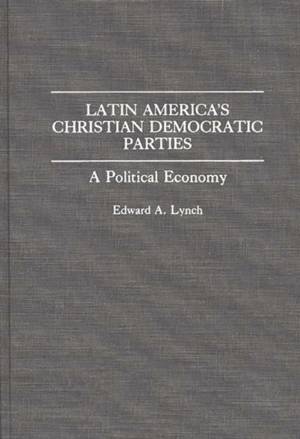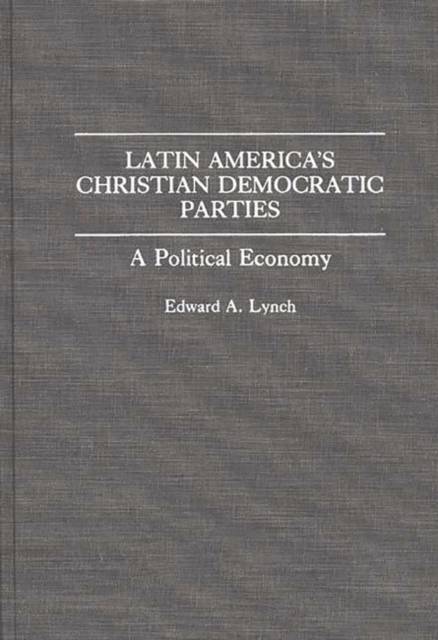
- Afhalen na 1 uur in een winkel met voorraad
- Gratis thuislevering in België vanaf € 30
- Ruim aanbod met 7 miljoen producten
- Afhalen na 1 uur in een winkel met voorraad
- Gratis thuislevering in België vanaf € 30
- Ruim aanbod met 7 miljoen producten
Omschrijving
This work provides a comprehensive examination of Christian Democracy in Latin America from its nineteenth-century origins to the events of the 1990s. Lynch treats the record of Christian Democratic parties in the most crucial areas of economic concern in Latin America: chapters on land reform, nationalization, and the emergence of free market capitalism point up the relationship between politics and economics. Lynch concludes that had Latin America's Christian Democrats followed their own policy prescriptions, both they and Latin America would be better off. Instead, Christian Democrats abandoned their roots in Catholic social thought, embraced statism, and left their countries completely unprepared for the upsurge in liberal economic reform that swept Latin America in the 1980s.
This work provides a comprehensive examination of Christian Democracy in Latin America from its nineteenth-century origins to the events of the 1990s. The author treats the record of Christian Democratic parties in the most crucial areas of economic concern in Latin America: chapters on land reform, nationalization, and the emergence of free market capitalism point up the relationship between politics and economics. Lynch concludes that had Latin America's Christian Democrats followed their own policy prescriptions, both they and Latin America would be better off. Instead, Christian Democrats abandoned their roots in Catholic social thought, embraced statism, and left their countries completely unprepared for the upsurge in liberal economic reform that swept Latin America in the 1980s. This work will be of interest to scholars and students in Latin American studies, Third World studies, political economy, comparative politics, and religion and politics.Specificaties
Betrokkenen
- Auteur(s):
- Uitgeverij:
Inhoud
- Aantal bladzijden:
- 224
- Taal:
- Engels
- Reeks:
Eigenschappen
- Productcode (EAN):
- 9780275944643
- Verschijningsdatum:
- 24/11/1992
- Uitvoering:
- Hardcover
- Formaat:
- Genaaid
- Afmetingen:
- 163 mm x 244 mm
- Gewicht:
- 535 g

Alleen bij Standaard Boekhandel
Beoordelingen
We publiceren alleen reviews die voldoen aan de voorwaarden voor reviews. Bekijk onze voorwaarden voor reviews.











